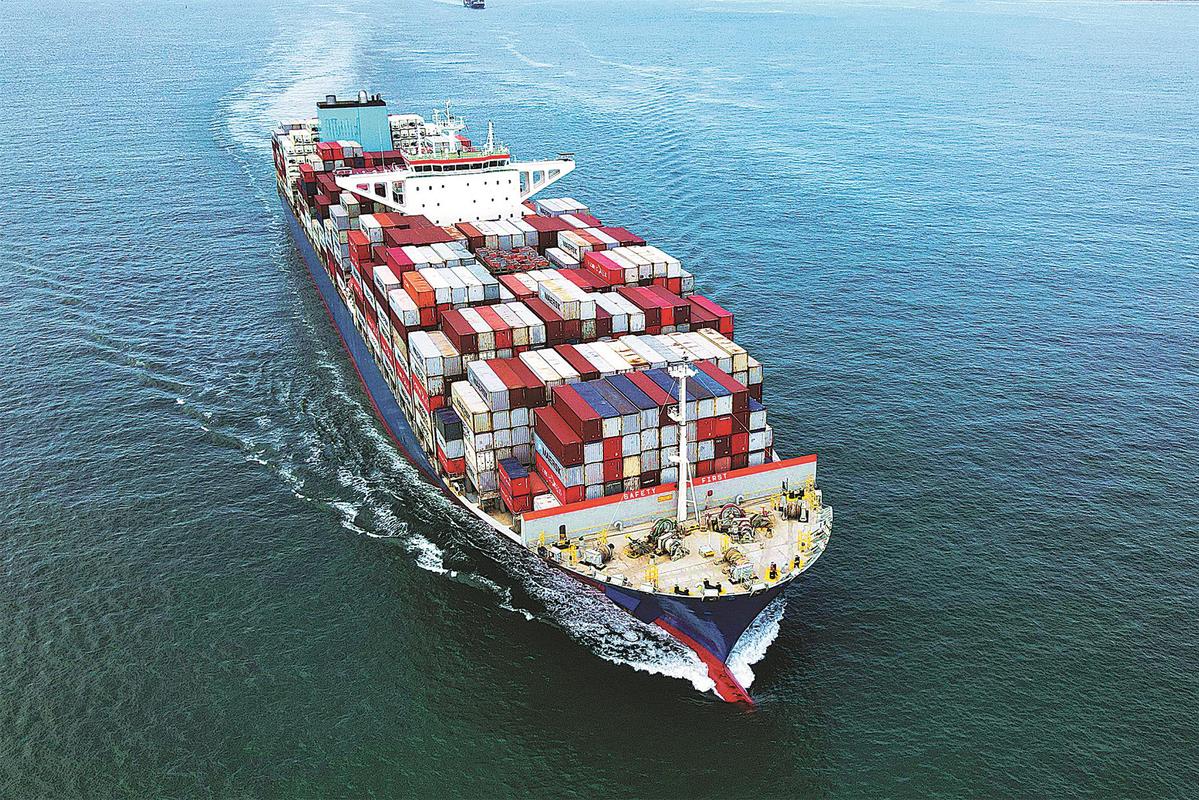Trade experts say Chinese firms have no need to engage in 'origin washing'

Chinese companies, especially mechanical and electrical product manufacturers, remain highly competitive in global markets and have no need to engage in "origin washing" to maintain exports to the United States, according to trade experts and exporters.
Despite escalating trade restrictions and tariffs imposed by the US, along with biased coverage by certain foreign media outlets, they noted that altering the origin of goods to circumvent trade rules poses significant legal and compliance risks. Such practices offer no economic benefit.
"Washing the country of origin" refers to the practice of some companies altering the declared origin of goods to evade tariffs, quotas, bans or other trade restrictions imposed by a target country on products from a specific source.
READ MORE: MOC: US seriously undermined economic talks with China
This is typically done by routing goods through a third country for minimal processing, misreporting the country of origin, or falsifying documentation.
Peng Delei, a professor specializing in international trade law at the East China University of Science and Technology in Shanghai, said such actions may constitute "circumvention of rules of origin". If discovered, companies involved could face retroactive tariffs, criminal charges, or inclusion on trade blacklists.
In addition to certificates of origin, US Customs and Border Protection requires exporters to provide production records, invoice chains, material sourcing information and other related data.
In 2023, key targets for enforcement included countries such as Vietnam, Malaysia, Cambodia and Mexico, according to information released by the Beijing-based China Council for the Promotion of International Trade, or the CCPIT.
Shi Xianjin, an assistant researcher at the Chinese Academy of Social Sciences' Institute of World Economics and Politics, said there is no real advantage in taking such risks when legitimate channels remain viable, especially after China and the US agreed in mid-May to temporarily lower tariff rates.
By upgrading product portfolios, tapping into diversified markets and building strong independent brands, Chinese exporters have demonstrated their capacity to access the US and other global markets through transparent means, said Shi.
Tang Qianjia, vice-president of Shenzhen Tiantu Tongxun Supply Chain Co, a freight forwarder in Guangdong province, said that for many Chinese exporters, the US is not their only market, and there is no need to engage in "origin washing".
With growing demand from emerging markets in Southeast Asia, the Middle East, Africa and Latin America, Tang said Chinese companies are increasingly diversifying their export destinations.
Zhao Ping, head of the academy of the CCPIT, said this shift not only reduces reliance on a single market but also helps mitigate risks from geopolitical tensions and trade protectionism.
Chinese companies have already expanded their global footprint through legally compliant overseas manufacturing, accelerated digital transformation and improved supply chain transparency in recent years. These moves have strengthened their resilience amid mounting global uncertainties, said Zhao.
"Maintaining compliance and focusing on quality and innovation remain the most effective strategies for navigating the complex trade landscape today," she added.
ALSO READ: Across the Pacific, China-US trade resurges amid shared win-win vision
Ningbo Corelead Optoelectronics Technology Co, a Ningbo, Zhejiang province-based light-emitting diode products manufacturer, has adopted a globalized production strategy of manufacturing core components in China and conducting further processing at overseas factories, according to Ningbo Customs.
"We export key parts from China to our factories in Vietnam and Serbia, where they source additional components locally to make the final products," said Yu Xiongwei, the company's chairman.
He said that host country governments are supportive of Chinese companies establishing local warehouses and factories, as such operations contribute to the local economy.
"Chinese companies, especially mechanical and electrical product manufacturers, have already made the shift from aggressively securing orders to building stable global operations, making the practice of 'origin washing' obsolete," said Yu, adding that the company's exports reached 62 million yuan ($8.63 million) in the first five months of this year.
Contact the writer at zhongnan@chinadaily.com.cn


